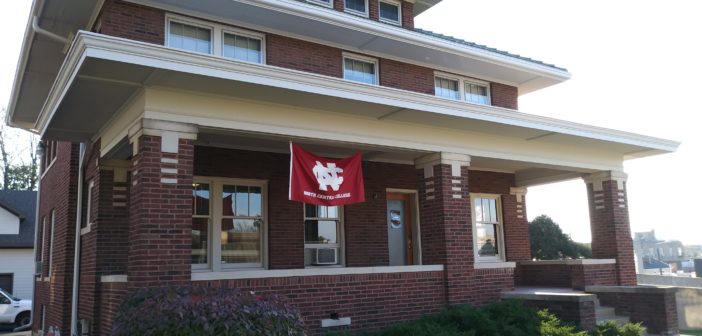The Center for Social Impact is a new campus center partnered with the Leadership, Ethics and Values (LEV) program. Whitney Roberts, director of civic engagement and social innovation at the Center for Social Impact, collaborated with the Center’s staff on several questions posed by The Chronicle to provide more insight into what their role is moving forward.
Jack Plewa: What exactly is the Center for Social Impact?
Whitney Roberts: The Center for Social Impact is a collaborative hub for cross-campus social impact initiatives — a physical space that houses key faculty and staff and serves as a visible point of contact for both campus and community partners. The Center will advance the development of “Changemaking Pathways” to prepare students to make a difference through service, scholarship, social innovation, citizenship and advocacy. The Center will also offer meeting space, resource support and mentoring for student organizations focused on social impact and provide a platform for launching new initiatives in social innovation and social entrepreneurship, both inside and outside of the classroom.
JP: Why was it made? What is its purpose?
WR: North Central College has long supported and advanced the public purpose of higher education, emphasizing the values of civic engagement, local and global service, social justice, sustainability and, more recently, social innovation and social entrepreneurship. These values have helped fuel the core of our College mission to develop curious, engaged, ethical and purposeful citizens and leaders, “changemakers,” that infiltrate every field, community and career with meaning and purpose.
As we focus our strategic plan and general education reform around high-impact practices, interdisciplinary problem-solving and experiential learning, it is within the realm of social impact education that these approaches can flourish. The “signature work” of engaged students, as described in AAC&U’s Leap Challenge, calls for students to “integrate and apply their learning to complex problems and projects that are important to the student and society.”
This type of learning would naturally utilize “high-impact practices,” including community-based learning, collaborative projects, internships, capstone projects and exposure to diversity. A Center for Social Impact would provide the academic and co-curricular framework that will allow this type of learning to reach a broad and more diverse set of students. A centralized campus hub for these rich interdisciplinary activities could transform the student experience, deepen our community relationships, and strengthen the College’s reputation locally, regionally and nationally.
JP: Who came up with the idea to have a Center for Social Impact?
WR: The idea came as the work of the Leadership, Ethics and Values program continues to grow in breadth and depth, in close partnership with Student Affairs. We identified a unique opportunity to elevate this social impact work across campus to a new level of coordination, collaboration and synergy.
JP: How will the Center for Social Impact affect/impact/benefit the NCC community?
WR: More students from all backgrounds need increasing opportunities to find the intersection of their individual purpose and needs of the world. The Center for Social Impact will provide:
- Increased experiential learning opportunities for all students by supporting more community-engaged learning courses, co-curricular service opportunities, internships, cultural immersion experiences and leadership opportunities.
- Better career preparation and employment opportunities through the real-world application of knowledge through problem-solving in partnership with local non-profits, government and businesses.
- More inspiring and meaningful cultural, artistic and intellectual campus events that would connect with students’ desire to make a positive social impact (concerts, films, speakers, etc.)
The Center for Social Impact will seek to dissolve the boundaries of the campus to make the College a more visible and respected intellectual asset to the community, providing:
- Partnerships that focus on solving real community challenges (social, environmental, cultural) through the investment of intellectual and physical resources — research, service, activism
- Social entrepreneurship resources for students and community members to help launch sustainable non-profit and for-profit organizations with a social mission
- Compelling community events that enhance the artistic and intellectual culture of the city
A centralized campus hub will allow the College to track, measure, report and market these valuable learning opportunities and their collective social and environmental impact while providing a single point of contact for internal and external stakeholders. In addition, the Center will:
- Raise the public profile of the College through a strengthened and more visible relationship with Naperville and surrounding communities, including business, government and non-profit realms
- Enhance the College’s reputation locally, regionally and nationally through a highly marketable Center, key affiliations, campus designations and awards/recognition
- Provide unique new opportunities for alumni and donor engagement
- Create a unique and compelling recruiting narrative for prospective students and parents
JP: How can students and faculty get involved in the Center for Social Impact?
WR: First, we would love you to stop by and see our new space at 40 E. Jefferson St. Also, get plugged into one of our student organizations like Students for Social Innovation or The Union. More opportunities to get connected will be announced as we launch a new website.
Students can get more involved by attending any of their upcoming events or add an LEV minor or concentration. For more information, visit the LEV house at 40 E. Jefferson St.

